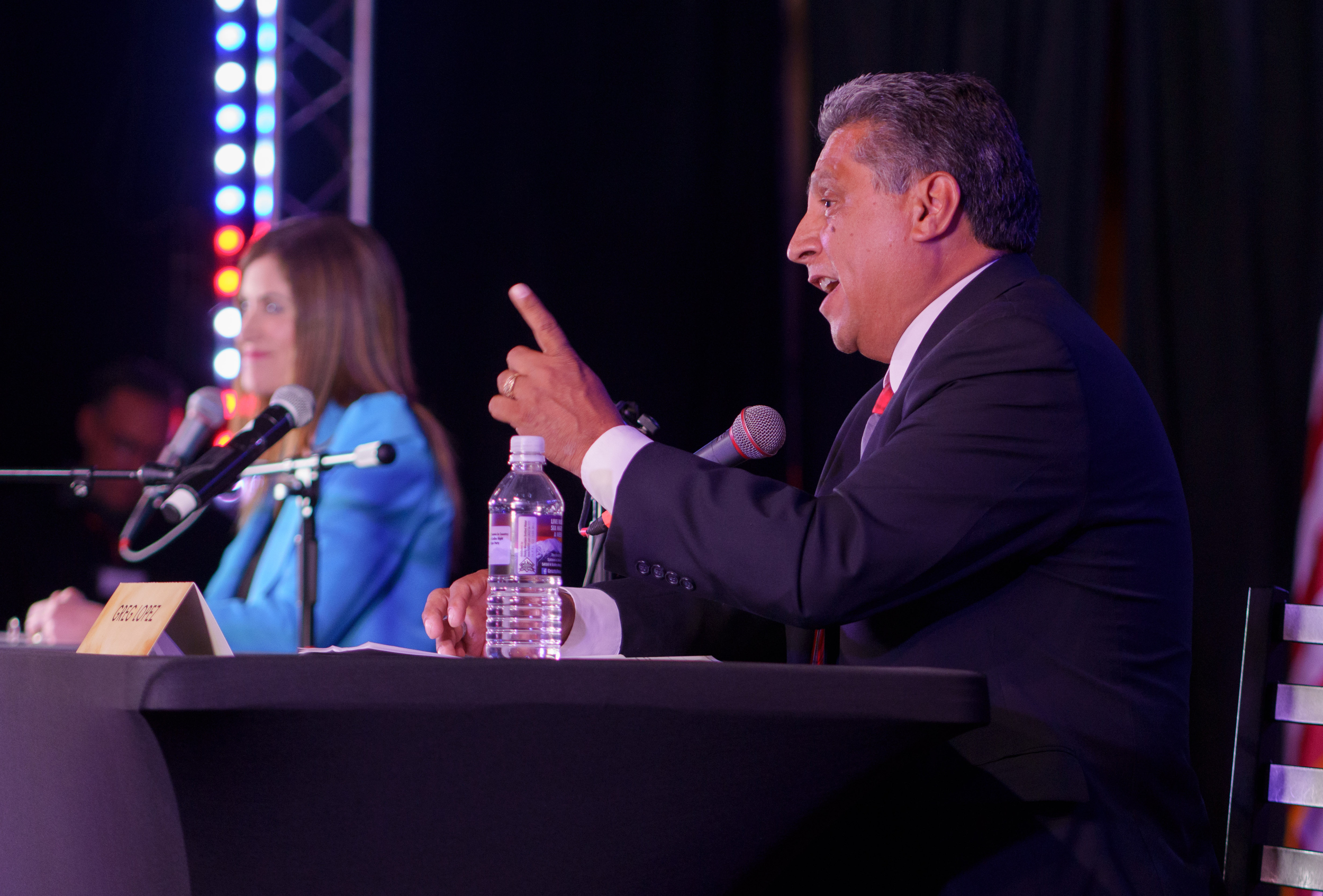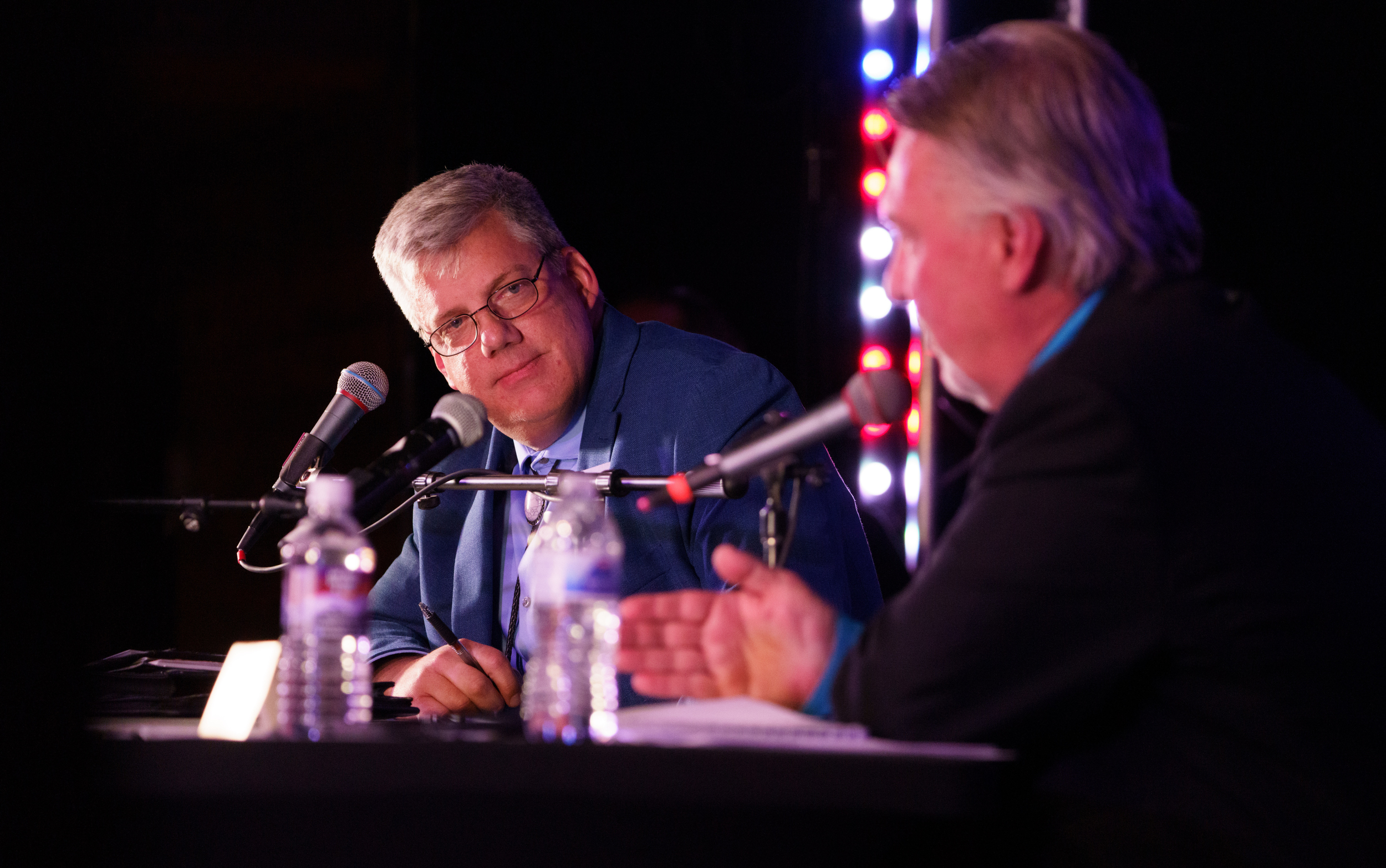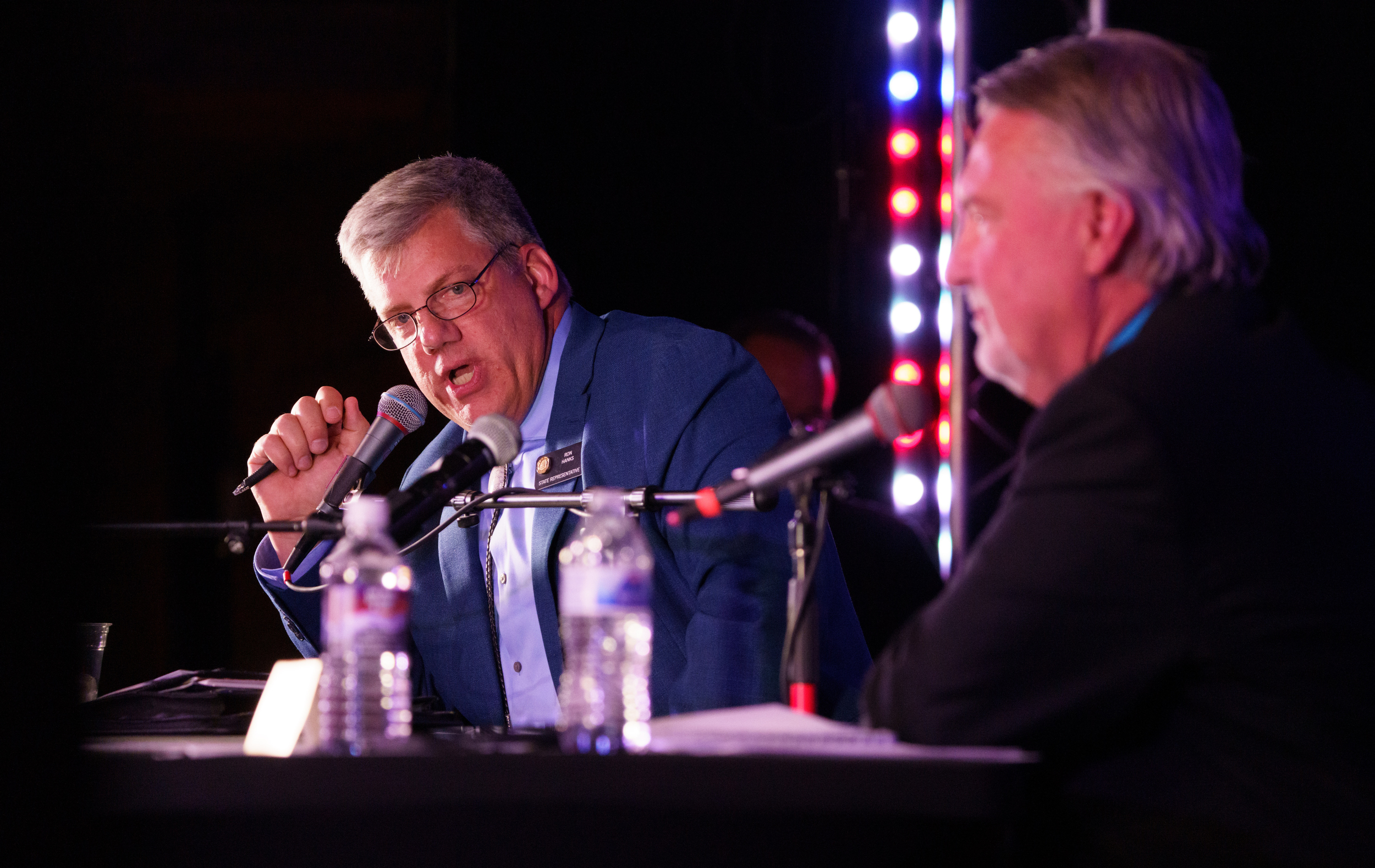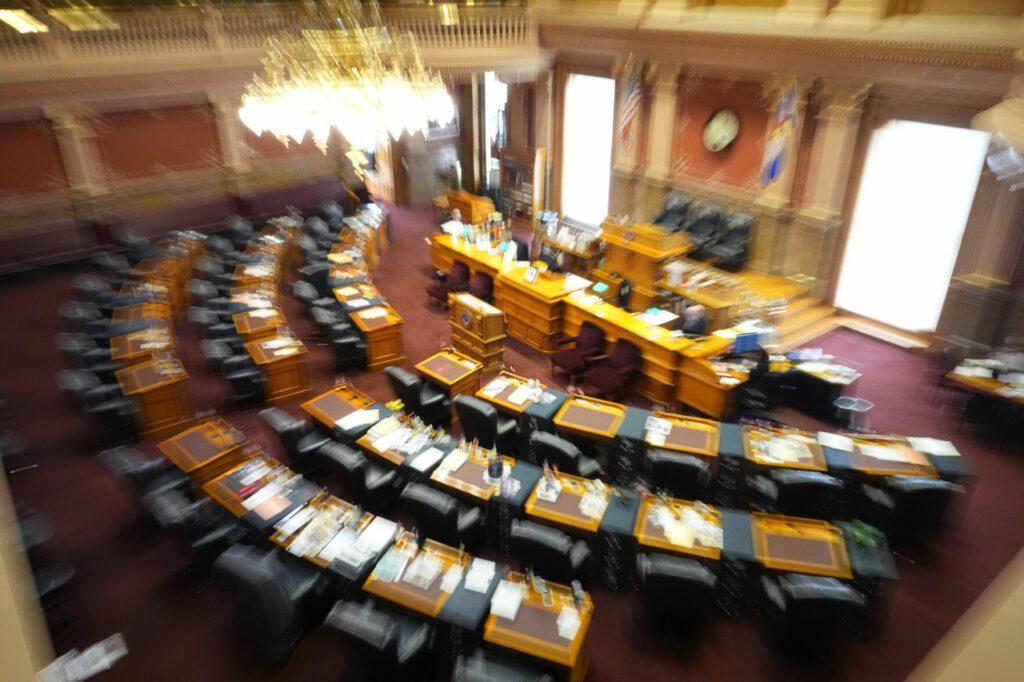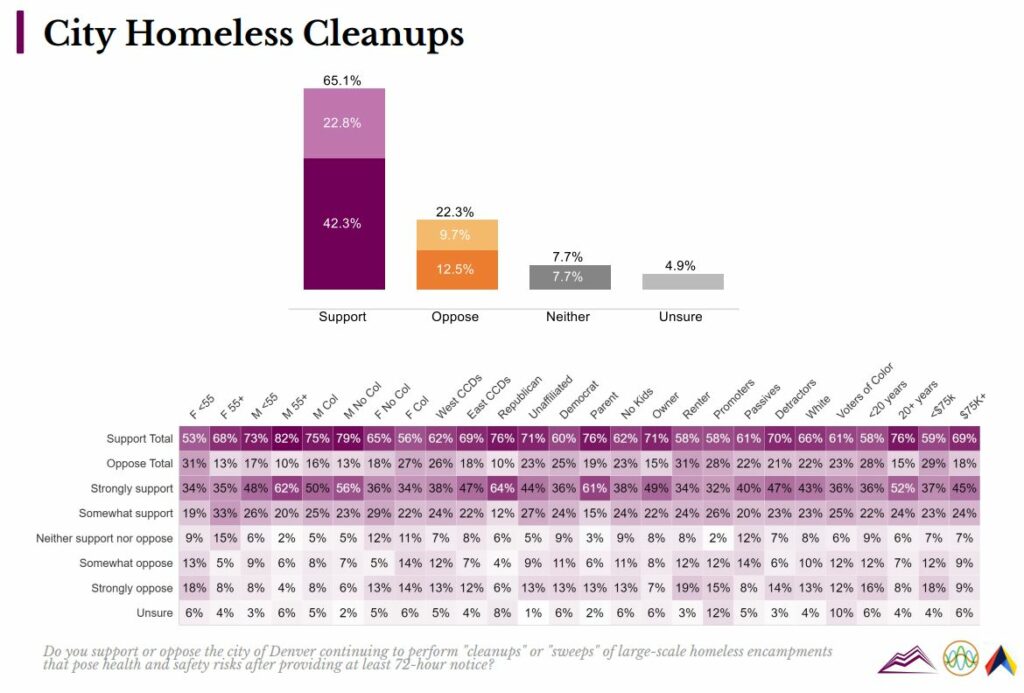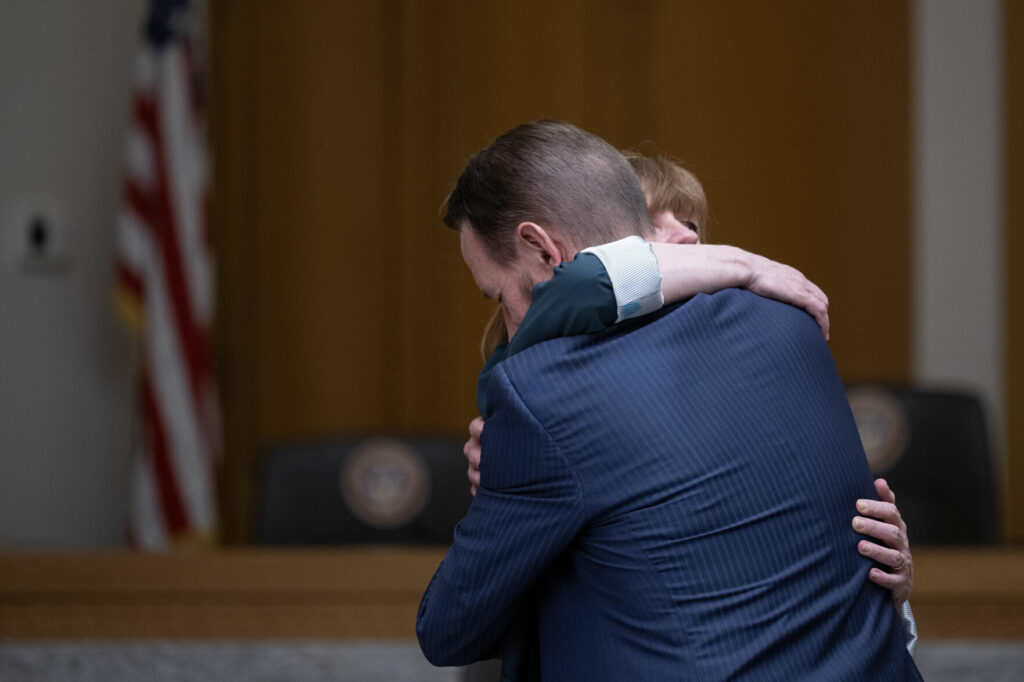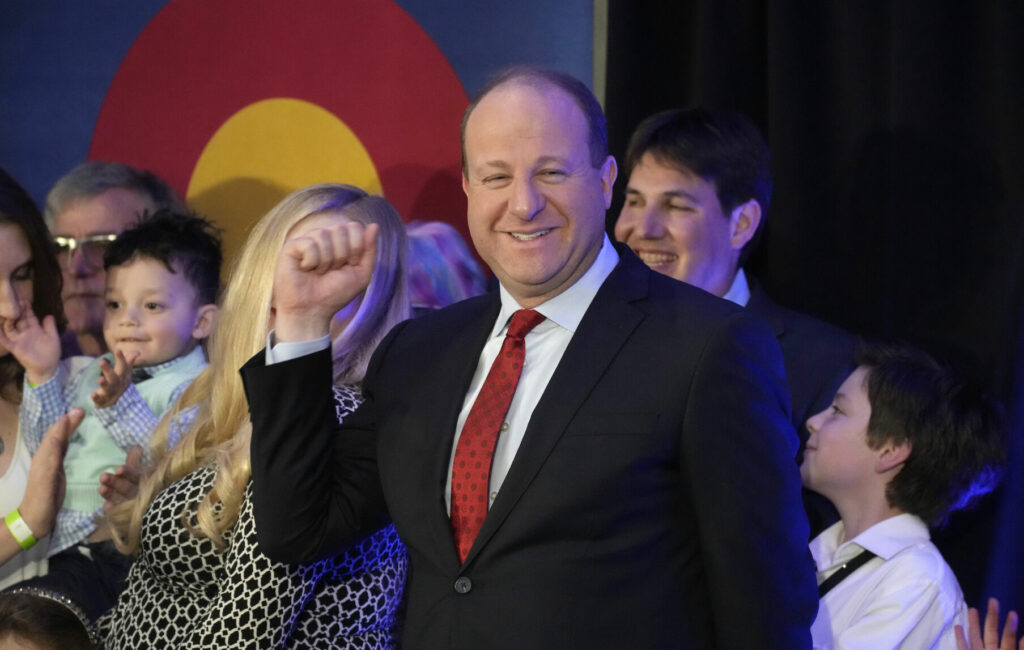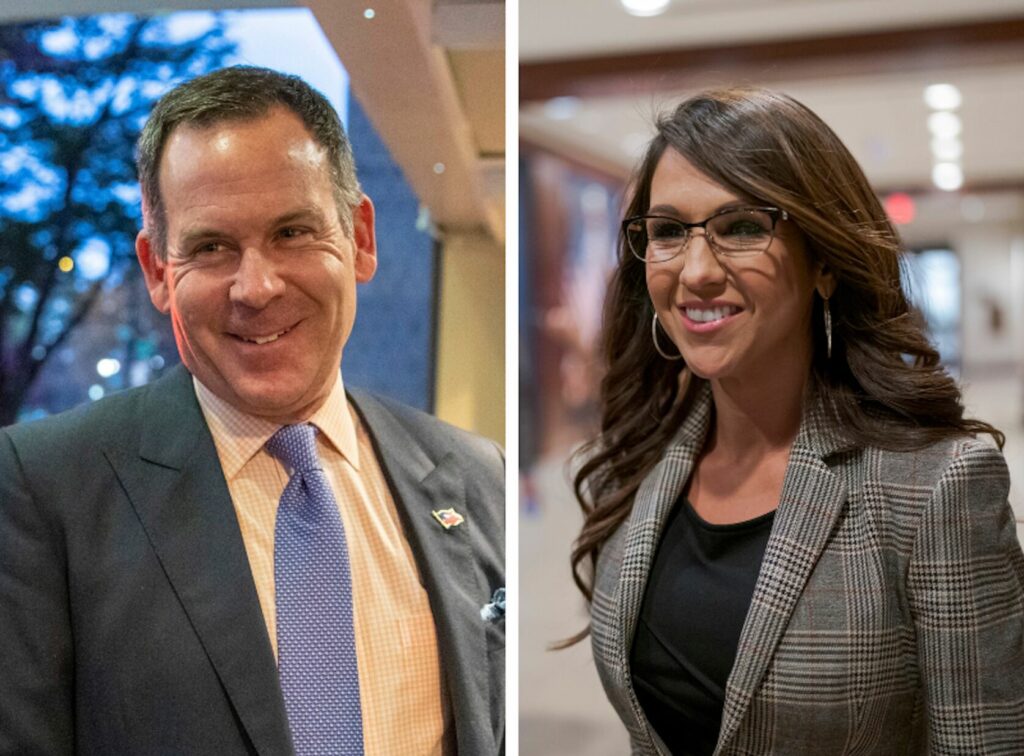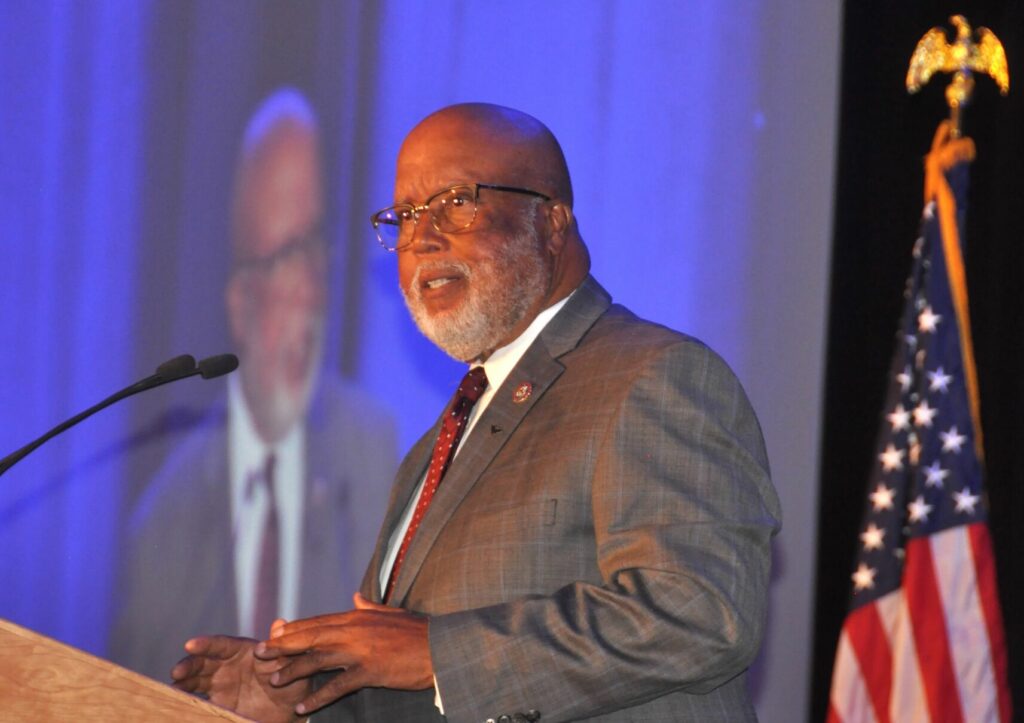2022 PRIMARY ELECTION GUIDE | Republicans duke it out as Democrats mostly avoid intra-party fights
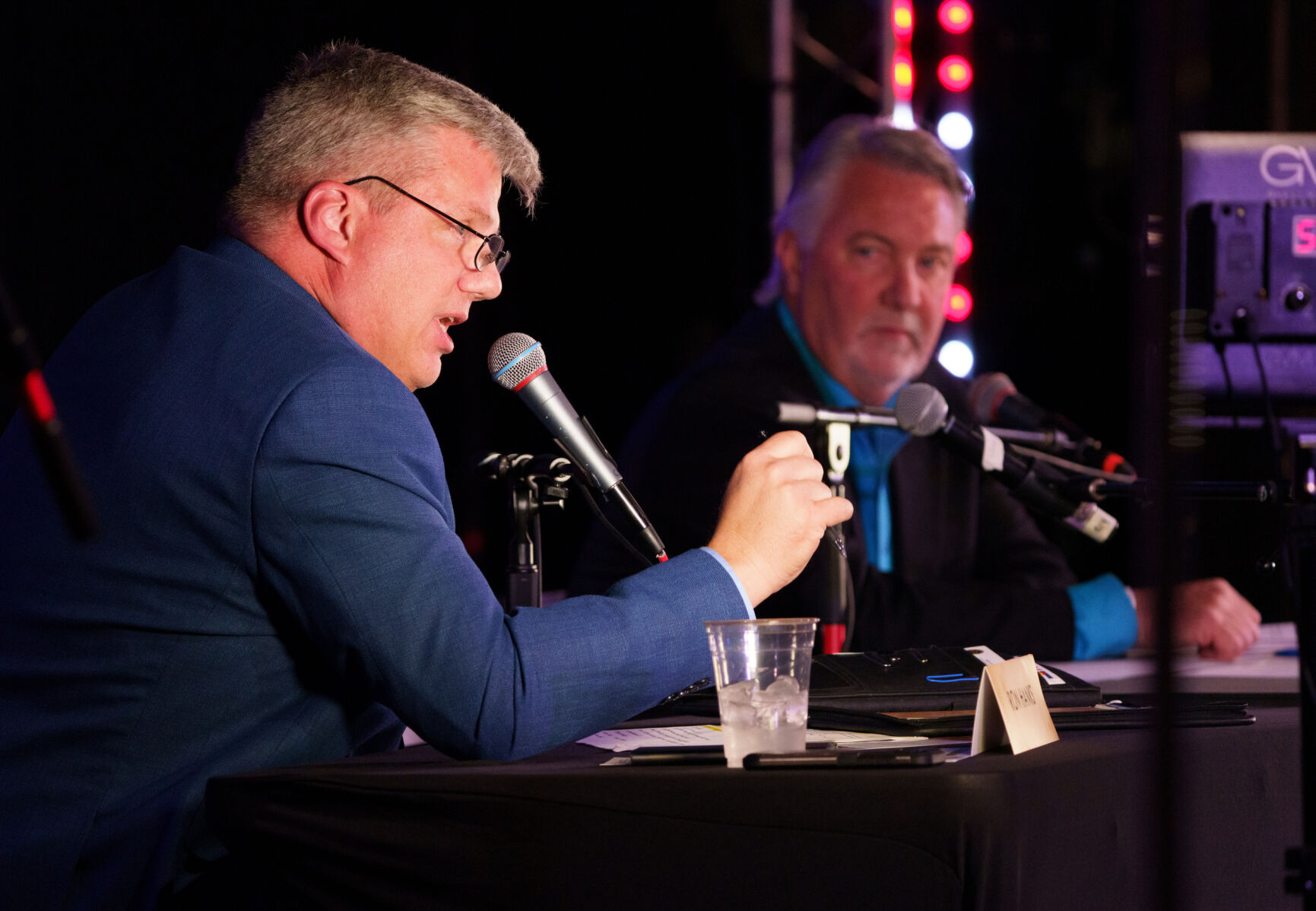
Colorado’s primary election has been underway since June 6, when most voters started receiving mail ballots that must be returned to county clerks by June 28.
Voters turned out in record numbers in the last state primary, with almost 1.6 million ballots cast in 2020, amounting to more than 45% of the 3.5 million active, registered voters. It marked a big jump from the 2018 election, when around 1.2 million people voted in the primary, but political observers are skeptical turnout will be as high this year.
That’s because it’s a midterm election – voter participation always slumps compared to presidential years – and, perhaps more consequentially, every statewide contest in this year’s primary is on the Republican ballot, offering less incentive for Democratic primary voters to return ballots.
It’s Colorado’s third state primary election with unaffiliated voters being able to cast ballots in either major party’s primary, due to voter approval in 2016 of a pair of statewide ballot measures that created semi-open primaries and established a presidential primary. (A fully open primary, like some states offer, would let voters with any affiliation vote in any primary.)
Unaffiliated voters make up by far the largest share of Colorado’s electorate, amounting to 45% of active, registered voters – up from roughly one-third of voters just a decade ago – with Democrats numbering about 27% and Republicans at about 25%. The rest belong to Colorado’s five minor political parties: the Libertarians, the Greens, the American Constitution Party, the Unity Party and the Approval Voting Party.
Unless they’re among the small number of voters who have signed up to receive just one of the major party’s primary ballots, unaffiliated voters will receive a Republican and Democratic primary ballot but can only fill out and return one.
Two years ago, the state’s Democratic primary drew more than 918,000 voters, while more than 565,000 voters participated in the Republican primary. Nearly one-third of the votes were cast by unaffiliated voters, who cast ballots in the Democratic primary about twice as often as they did in the Republican primary. More than 99% of Colorado’s voters voted by mail in the 2020 state primary, with a slightly higher percentage of Republicans returning mail ballots rather than vote in person at county clerks’ offices and polling centers.
Following a run of elections dominated by Democrats – one reason pundits speculate Colorado might have tilted from swing-state status to a more consistent shade of blue – the party’s incumbents not only hold every major statewide office on the ballot, but they’re all running for reelection and managed to avoid primary challenges.
On the Republican side, it’s a different story, with contentious primaries nearly across the board, fueled in part by a sense that the GOP has a chance of regaining a foothold in a state the party ruled just 20 years ago.
The party that controls the White House almost always faces a backlash in a midterm, and this year’s could be more jolting than usual, with President Joe Biden’s approval ratings on the skids as inflation, the crime rate and voter dissatisfaction climb.
While a red wave could be building, Colorado’s demographics and political lean have changed dramatically since Republicans ruled the roost in the early years of the century, potentially blunting voters’ urge to take their frustrations out on the party in power. Throw in an anticipated Supreme Court decision overturning 1973’s Roe v. Wade decision – sending abortion policy back to the states for the first time in generations – amid hardened partisan divides in the wake of President Donald Trump’s administration, and Democrats are confident their voters will be as motived as they have been in recent elections.
Republican primary voters will have clear choices in statewide and congressional races between more traditional Republicans and their feistier fellow partisans, with the latter typically framing it as a contest between the GOP’s establishment and its restless grassroots wings.
At the top of the ticket, Democratic Gov. Jared Polis, a wealthy tech entrepreneur who served five terms in Congress, is seeking a second term. Vying for the chance to challenge him are University of Colorado Regent Heidi Ganahl, founder of a national dog day-care company and the only Republican left in statewide office, and Greg Lopez, who served as mayor of the town of Parker 25 years ago and finished third in the gubernatorial primary last cycle.
Democratic U.S. Sen. Michael Bennet, a former Denver schools superintendent who was appointed to the seat in 2009, is seeking a third full term. The GOP candidates hoping to deny his reelection are state Rep. Ron Hanks, R-Cañon City, a 32-year military veteran who developed a reputation as one of the legislature’s most outspoken conservatives since winning election in 2020, and construction company CEO Joe O’Dea, a newcomer to politics who sometimes sounds like an old-fashioned Republican, less driven by ideology than by a conviction that government can be approached like a business.
The contrast between the GOP’s old guard and its more Trump-aligned members could be sharpest in the primary for secretary of state, the state’s top election official. The once-sleepy office has been thrust into prominence in recent years amid pitched battles over election security and whether or not voting should be as easy as possible.
Democratic incumbent Jena Griswold, who became a leading defender of Colorado’s voting system against attacks by Trump and his allies during the COVID-19 pandemic, is running for a second term. Three Republicans are on the primary ballot for the chance to face her in the fall: Mesa County Clerk Tina Peters, who won top line on the ballot when she received the largest share of delegate votes in any contested race at the GOP state assembly; former Jefferson County Clerk Pam Anderson, a former director of the county clerks’ association who petitioned onto the ballot; and, business consultant Mike O’Donnell, a newcomer to politics who also made the ballot at the state assembly.
Peters, who maintains she’s done nothing wrong, made the ballot after being indicted on seven felony counts related to allegations she helped tamper with her own county’s election equipment last summer in an attempt to gather evidence to support unfounded claims of stolen elections. She’s also been forbidden by a judge from having anything to do with Mesa County’s elections this year and is facing multiple ethics and campaign finance complaints. Anderson rejects Trump’s disproven claims that the 2020 presidential election was rigged and stands by the integrity of Colorado’s election system, insisting it is safe and secure, though she says there are improvements to be made.
The general election match-ups are set for the two remaining constitutional offices. Attorney General Phil Weiser, the incumbent Democrat, will face 18th Judicial District Attorney John Kellner, who is unopposed for the Republican nomination, and Democratic State Treasurer Dave Young will face challenger Lang Sias, a former state representative and the Republicans’ 2018 nominee for lieutenant governor.
Voters face five Republican primaries and three Democratic primaries in the state’s eight congressional districts.
Colorado gained an eighth seat after the 2020 census and Democratic U.S. Rep. Ed Perlmutter’s decision to forego seeking a ninth term created another rare open seat.
Republicans will choose a nominee from a crowded field in the evenly divided 8th CD, which covers suburbs and exurbs north of Denver to Greeley. The GOP hopefuls are Weld County Commissioner Lori Saine, Thornton Mayor Jan Kulmann, state Sen. Barb Kirkmeyer, R-Brighton, and Army Special Forces veteran Tyler Allcorn. State Rep. Yadira Caraveo, D-Thornton, a pediatrician, is the presumptive Democratic nominee for the seat.
The Democratic-leaning 7th CD, including Jefferson County, Broomfield and mountain counties as far south as Cañon City, features a GOP primary between former oil and gas executive Erik Aadland, economist and business owner Tim Reichert and former legislative candidate Laurel Imer. The winner will face state Sen. Brittany Pettersen, D-Lakewood, in November.
U.S. Rep. Lauren Boebert, an avid Trump supporter and the state’s highest profile Republican, is facing a primary challenge from state Sen. Don Coram, R-Montrose, in her bid for a second term in the Republican-leaning, Western Slope-based 3rd CD . Democrats running for the nomination in the district are Sol Sandoval, a community organizer from Pueblo; former Aspen City Councilman Adam Frisch; and, engineer Alex Walker.
Three Republicans are challenging U.S. Rep. Doug Lamborn’s bid for a ninth term in the heavily Republican El Paso County-based 5th CD: state Rep. Dave Williams, R-Colorado Springs; veteran and nonprofit executive Rebecca Keltie; and, business owner Andrew Heaton. Democrats Michael Colombe, a longtime civil servant with experience at the Bureau of Land Management and Departments of Interior and Defense, is running against David Torres, an Air Force Reserves veteran with a background in health care administration.
The dean of Colorado’s congressional delegation, 13-term Democrat Diana DeGette, is faced with a primary challenge from the left in the heavily Democratic, Denver-based 1st CD, in Neal Walia, a self-described grassroots progressive who worked at the National Governors Association and in then-Gov. John Hickenlooper’s office.
U.S. Rep. Ken Buck, a former district attorney who served two years as chairman of the Colorado Republican Party, wound up with a surprise primary at district assembly in the heavily Republican 4th CD, which covers Douglas County, parts of Weld County and most of the Eastern Plains. Realtor Bob Lewis, a first-time candidate, is challenging Buck from the right.

